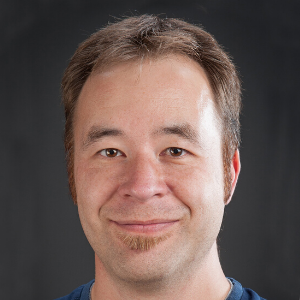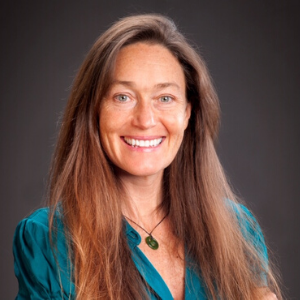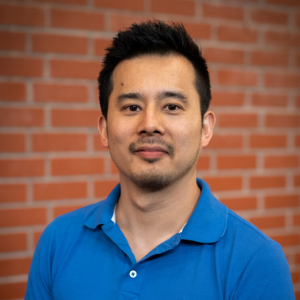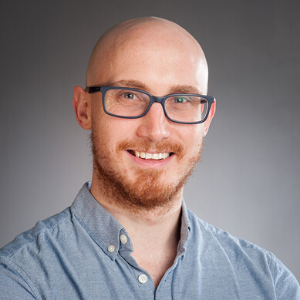Researcher profiles - Annual Report 2019
James Storey - Heading away to study, returning home to live
25 May, 2020
 Dr James Storey is an Associate Investigator at the MacDiarmid Institute, and a Senior Scientist at the Robinson Research Institute. After completing his PhD under Professor Jeff Tallon at Victoria University of Wellington in 2007, James headed to Cambridge University as a postdoctoral researcher. He says the experience was incredible but that after four years he knew he wanted to come home.
Dr James Storey is an Associate Investigator at the MacDiarmid Institute, and a Senior Scientist at the Robinson Research Institute. After completing his PhD under Professor Jeff Tallon at Victoria University of Wellington in 2007, James headed to Cambridge University as a postdoctoral researcher. He says the experience was incredible but that after four years he knew he wanted to come home.
“I knew that by coming back to New Zealand I could have the lifestyle I wanted, near my family, as well as the ability to conduct world-class research. I’m quoting Paul Callaghan word for word here, but New Zealand really is a place talent wants to live.”
Dr Storey joined the MacDiarmid Institute on his return to Wellington; he was already exposed to the networking and support crucial to him completing his PhD all those years ago. Now mentoring PhD student Thomas Knott, along with MacDiarmid researcher Dr John Kennedy, he encourages his PhD students to make the most of the all the Institute has to offer.
“There are lots of good connections for students working in the field of advanced materials. It adds a big value to the PhD experience.”
Since becoming an Associate Investigator, Dr Storey’s research has evolved. He began looking into fundamental high- temperature superconductors and over the last four years has migrated to applied research.
His main project, funded under the MBIE Endeavour Fund, has his team focused on developing a prototype aircraft motor, specifically working on a levitation bearing programme using superconductors and theoretical modeling.
His group of researchers at the Robinson Research Institute is small, and his work niche, but he says being part of the MacDiarmid Institute allows all researchers in the relevant field to pull on their resources together in one place.
“There have been so many collaborative opportunities as a result of being part of the MacDiarmid.”
Dr Storey has been appointed leader of the Tomorrow's Electronic Devices (TED) theme.
Krista Steenbergen - Growing up in the MacDiarmid Institute
 New Associate Investigator Dr Krista Steenbergen has a long history with the MacDiarmid Institute. On arriving in New Zealand from the United States in 2009, she became now Co-Director Associate Professor Nicola Gaston’s first PhD student.
New Associate Investigator Dr Krista Steenbergen has a long history with the MacDiarmid Institute. On arriving in New Zealand from the United States in 2009, she became now Co-Director Associate Professor Nicola Gaston’s first PhD student.
Dr Steenbergen loves outreach and engagement, such as being part of a panel on Women in Science during TechWeek. She says she loved speaking to girls at an age where they were making decisions about their future.
“Having part of the Institute dedicated to outreach and community makes it easy and fun to be part of events like this. I definitely want to do more in the future.”
“It was a magnificent environment to grow up in as a PhD student.”
Despite taking up postdoctoral research positions in Berlin and Kansas, the collaborative community she has found herself within the MacDiarmid Institute is unlike anything she has witnessed worldwide.
“Everyone pays attention to each other’s research. There’s really nowhere else like it.”
Jack Chen - Meeting the right people
 For Dr Jack Chen, becoming an Associate Investigator with the MacDiarmid Institute this year has, he says, given him introductions to and connections with senior researchers he would likely otherwise not have met.
For Dr Jack Chen, becoming an Associate Investigator with the MacDiarmid Institute this year has, he says, given him introductions to and connections with senior researchers he would likely otherwise not have met.
“As an early career researcher, one of the hardest things is meeting the right people. The most important NZ scientists in my field are here in the MacDiarmid, so getting to present my work to them at theme meetings, and working together on ideas for the rebid has been a great way to interact with them. It’s such a collaborative environment. Elements of my ideas even made it into the rebid as one of the projects – so that’s been very exciting."
Dr Chen, who is a Senior Lecturer in Chemistry at Auckland University of Technology, is making catalysts that reversibly self-assemble using hydrophobic interactions – allowing the creation of stimulus-responsive systems.
“We recently added a light-responsive functional group to the hydrophobic part of the surfactant – so we’re now able to use light to activate and deactivate the catalytic system. This has applications in smart materials, computing and molecular level intelligent chemical networks.”
He says being in the Institute is a real drawcard for students. “The students get to come to Institute symposia and meet their peers from up and down the country – I can see how much fun they have – and these are their future research peers, so they’re building great connections early.”
Nate Davis - Heading back to a smaller pond
 Not many researchers moving from Cambridge University in the UK, to a smaller university in New Zealand, would be as excited about the move as MacDiarmid Institute Associate Investigator Dr Nate Davis is.
Not many researchers moving from Cambridge University in the UK, to a smaller university in New Zealand, would be as excited about the move as MacDiarmid Institute Associate Investigator Dr Nate Davis is.
“Being here in NZ is actually amazing. I have been given such a great opportunity to grow and make a name for myself. New Zealand is a great place for this. I have learnt a lot from the University research department about writing grants which is essential to getting funding and growing your group. And being part of the MacDiarmid Institute has greatly increased my connections though NZ.”
He says NZ is a great place for younger researchers. “It’s a smaller pond, so you can grow and be fostered by organisations like the MacDiarmid Institute, and by the policies and government support for renewable technologies.”
Dr Davis says being a younger researcher comes with its challenges though; workload being one of them. “I review for about nine journals, and also teach, write grants and still get publications out; ideally more and more each year to show growth. It seems like some of those things get simplified when you’re a bigger name. You’ve taught the same course for years so it’s less time input - students come to you; you have established funds and connections etc.”
He says the job of an academic is a lot more complicated than just chemistry. “It’s like running a small company - securing finances, hiring students and delivering output to get more funding, all on top of teaching. MacDiarmid really helps with networking, exposure, students resources, guidance and collaborations.”
Dr Davis has had a fair amount of success this year in funding rounds – $1.5 million – so what does this mean for him and his research?
“In simple terms it means I can afford to expand my lab to four PhD students and one postdoc over three years. I will have enough people in the right place to really start to do a nice bit of science which can then link with the wider NZ network through the MacDiarmid to form collaborations and future projects. This will give me a cohesive research group and subsequent research outputs that will place me in a great position for the next stage of my career.”


